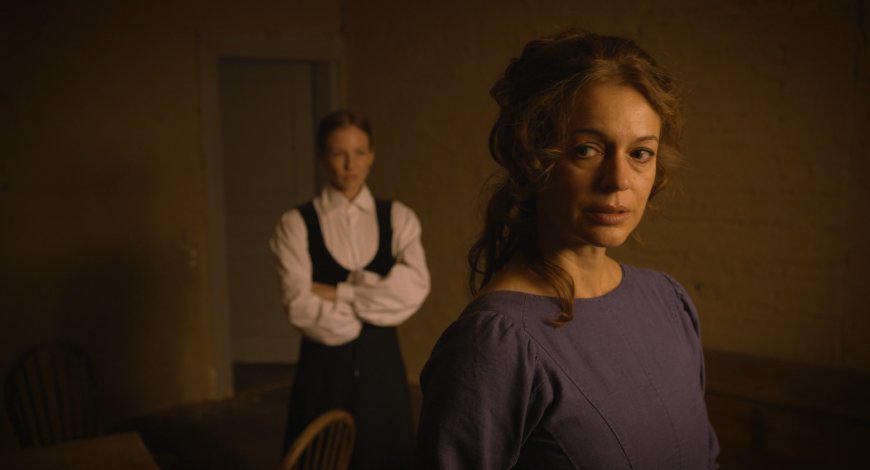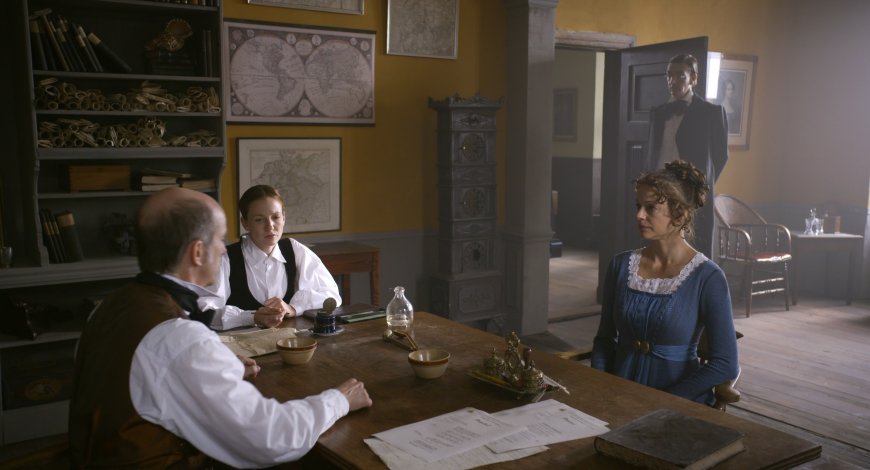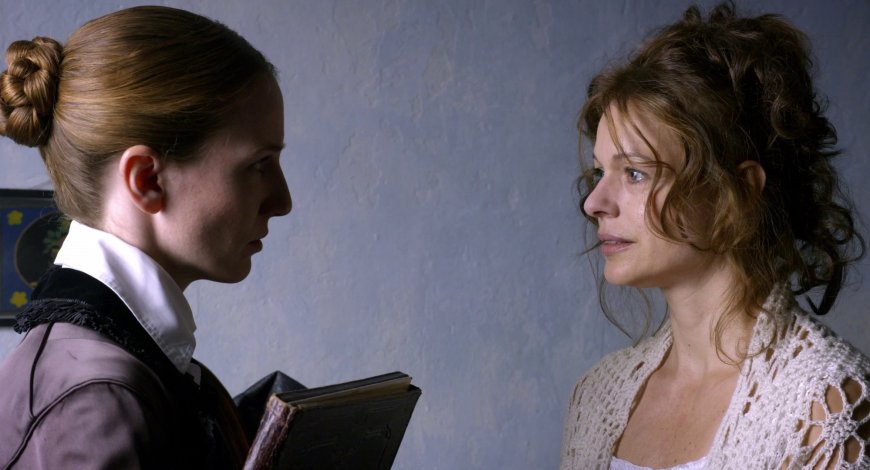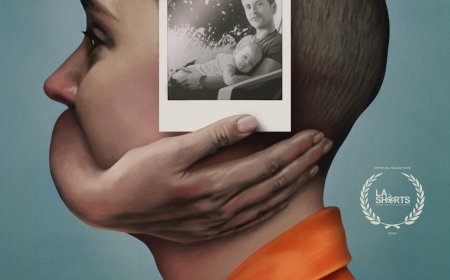Review of 'Effigy – Poison and the City': A most unusual period whodunnit
A young clerk in 19th Century Bremen, Germany, joins a top lawyer in probing a case involving several poisonings.

Effigy – Poison and the City: A most unsual period whodunnit
Cast: Susan Anbeh, Elisa Thiemann, Christoph Gottschalch, Roland Jankowsky, Uwe Bohm, Marc Ottiker, Tom Keidel, Nicola Melissian, Eugen-Daniel Kroessner, Marita Marschall, Susanne Jansen, Lea Wolfram, Ruben Apel
Critic’s Rating: 3.5 Stars out of 5
Director: Udo Flohr
Duration: 1 hour, 25 minutes
Genre: Crime, Mystery, Drama
Language: German (with English subtitles)
Release: 2022
What’s it about?
A young clerk in 19th Century Bremen, Germany, joins a top lawyer in probing a case involving several poisonings.
Review:
“Death is lurking everywhere”, rightly states the enigmatic main character – Frau Gesche Gottfried - in this off-beat German-language crime drama. Narrated from the perspective of a lady law clerk in 1828 at the German port city of Bremen, the audience is drawn into a puzzling case of multiple poisonings, investigators, suspects and other peripheral characters. These were also the days when railway lines were posing a lucrative alterative to the steam ship, stirring up conflicting interests. What we have here is a richly detailed celluloid yarn which unfolds in engaging fashion, with crisp dialogue and vivid characters, while also tackling the psychology behind murder.

The ambitious Fraulein Cato Boehmer (Elisa Thiemann) arrives to assist a legal authority - Senator Droste (Christoph Gottschalch). A Dr. Luce (Eugen-Daniel Kroessner) drops in at the lawyer’s office on behalf of a Herr Rumpff (Peer Roggendorff), reporting a suspicious white substance on the latter’s bacon. Droste assigns an eager Boehmer to investigate at Rumpff’s house. Here, the widowed Frau Gottfried (Suzan Anbeh) - a close of Rumpff’s late wife and who is helping run the domicile - has apparently taken ill. She insists on meeting Droste personally and mentions that two jars of a substance called “mouse butter” have vanished from the kitchen. Also, indicating that her late husband had bequeathed coveted property to her and thus fearing for her life, she vows never to return to the residence again.

While Droste puts up the distraught woman in a jail cell for her protection, a forensic expert (Marc Ottiker) discovers traces of arsenic in the mouse butter. The needle of suspicion turns towards Rumpff, who adamantly states his innocence. Without a clear motive or witnesses, the case hits a dead-end, before a couple of Frau Gottfried’s former neighbours - Beta and Hans (Nicola Melissian and Ruben Apel) - pay her visit in the jail. What follows is a startling case of murder and possible precedents, which involve the retrieved poisonous substance.

To reveal any more would be giving away too much, suffice to say that the upright personality of Frau Gottfried, as a compassionate and generous resident of the town, comes into question. The non-linear story also includes Germany’s Cholera Plague of 1815 and its impact on local families. Plus, the film addresses the controlling nature of fathers towards their daughters. The viewer is kept guessing as to the motive behind the fatalities and whether the suspect or suspects are in fact guilty of the apparent crimes. Meanwhile, a scheming Captain Ehlers (Roland Jankowsky) attempts to use a testimonial in the case to frame a certain party who is in favour of setting up railroads in Bremen.

Director and co-writer Udo Flohr has evidently used his M.A. Degree in Linguistics and Psychology to conceive and realise the film’s plot. Meanwhile, the movie’s period detail is befitting of the portrayed time and place while Anbeh steals almost every scene she’s in. However, as an investigative procedural, Effigy – Poison and the City falls short of complete satisfaction and there aren’t enough characters for the audience to suspect. Also, more vividness in the flashbacks - to augment the dialogue - could have helped. Still, the premise is effectively mounted and the tale is told relatively well - right up to the last scene, where it appears that the right “head” did roll.












































